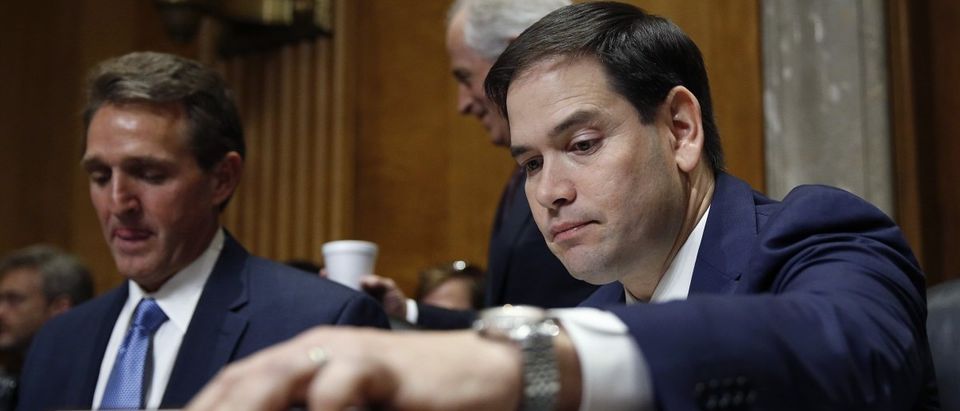WASHINGTON — One week after Donald Trump became the presumptive Republican presidential nominee, his party’s senators are split as to whether to throw their support behind him.
Trump, who received only one upper chamber endorsement, Alabama Republican Sen. [crscore]Jeff Sessions[/crscore], when other candidates were still in the primary, is scheduled to meet with members on Thursday, including House Speaker [crscore]Paul Ryan[/crscore], who previously said he was not ready to endorse the New York businessman.
Senate Republicans are nervous about keeping the majority that they won back from the Democrats in 2014.
Iowa Republican Sen. Chuck Grassley only reiterated to reporters Monday what he said three months ago: “I am going to do everything I can to make sure that we don’t have a third term of an Obama administration,” he said and repeated the statement again when asked if he would support a third party candidate.
Grassley added, “I am going to have to run my own race regardless of who our nominee is.”
“I support the ticket, and I am running for re-election and supporting me. I want to help keep the majority in the Senate,” Georgia Republican Sen. [crscore]Johnny Isakson[/crscore] said when asked whether he would be supporting Trump.
Florida Sen. [crscore]Marco Rubio[/crscore] confirmed he has only spoken to Trump once since ending his campaign after the Florida primary in March, but said the discussion had very few details.
“It was a pleasant conversation. It didn’t last very long, and it wasn’t about any details or anything, and it certainly wasn’t about being vice president,” said Rubio, who previously told CNN’s Jake Tapper he is not interested in being Trump’s running mate.
Trump claimed on Fox News last week that he and Rubio had recently had “really nice conversations,” and that he and Rubio “always had a good relationship.”
Rubio does not seem to be any closer to supporting Trump, telling reporters, “As I told everyone a few months ago, when I was still in the race, I said if Trump is our nominee, it is going to divide the party and fracture the movement. And that’s what’s happening.”
Oklahoma Republican Sen. [crscore]Jim Inhofe[/crscore] expressed frustration with party members who have not united behind Trump.
“I’m disappointed that there are some Republicans like the Bushes and even the chairman of the Republican Party with his bland response when they said, ‘Are you supporting him?'” he said. “But they just have to get it through their heads that he’s our nominee.”
He added that he “absolutely” supports Trump’s campaign.
Sessions defended Trump’s policy positions. “Donald Trump has talked directly to the American people about concerns they have — not about Washington’s concerns so much but the things important to their lives. It is sadly true that Republicans and Democrats have lost contact with the people,” he said.
“And when you talk about Republicans saying, ‘Oh this is a liberal candidate,’ but I say a restrained foreign policy, not Wilsonian, not excessively idealistic, is conservative. It’s classical Republicanism.”
He also said that Trump’s trade policy is conservative because it aims to negotiate in the best interests of the United States.
Arizona Republican Sen. [crscore]Jeff Flake[/crscore], though, told reporters he understands why Ryan is hesitant to support Trump’s candidacy.
“We want to be there. We want to support our nominee, but as long as he takes some of these positions it makes it very difficult,” Flake said.
Flake explained, “In a primary you can double down on some of your tough hard-core positions and just drive up the vote, but in the general you just can’t do that. It just doesn’t happen.”


